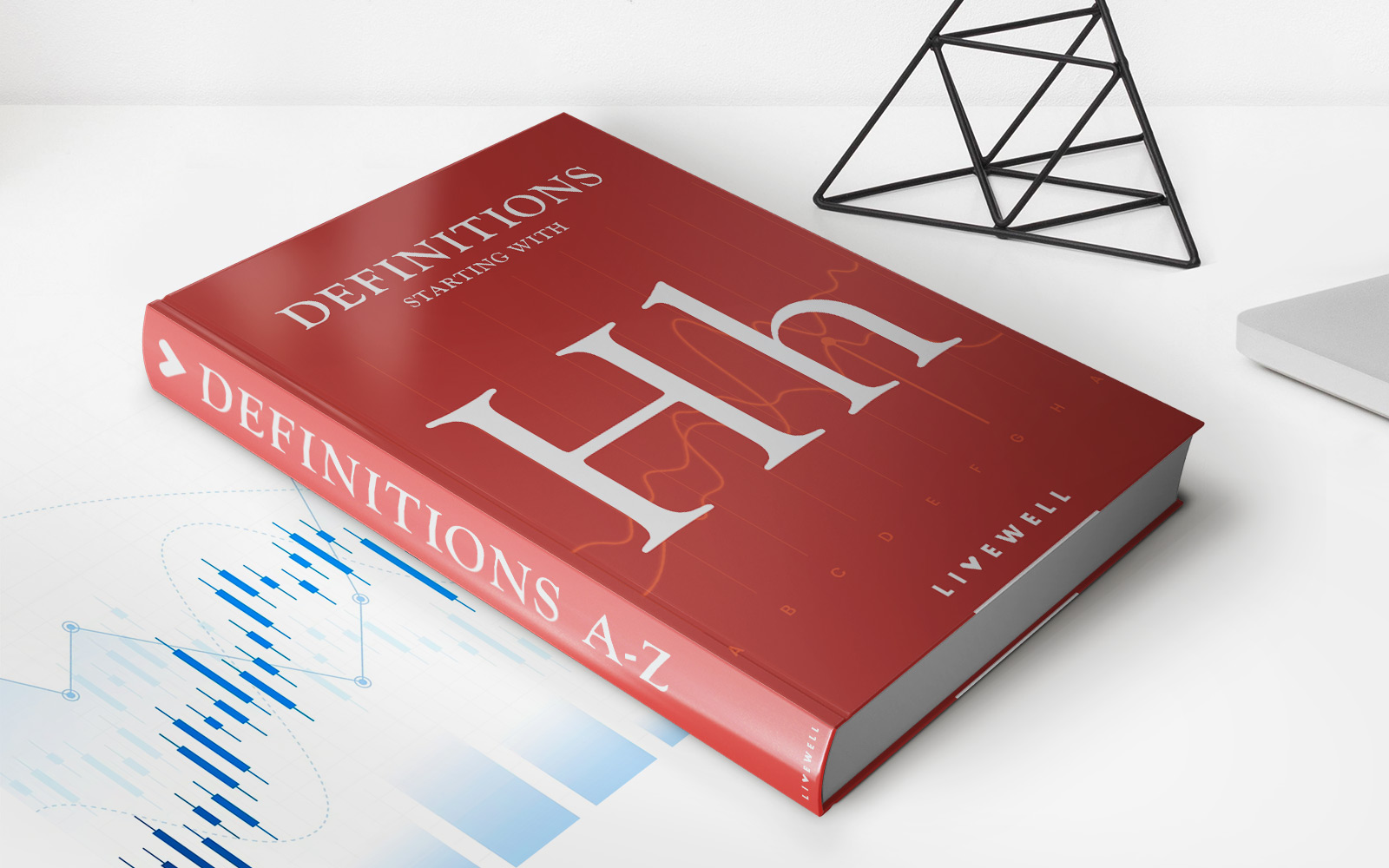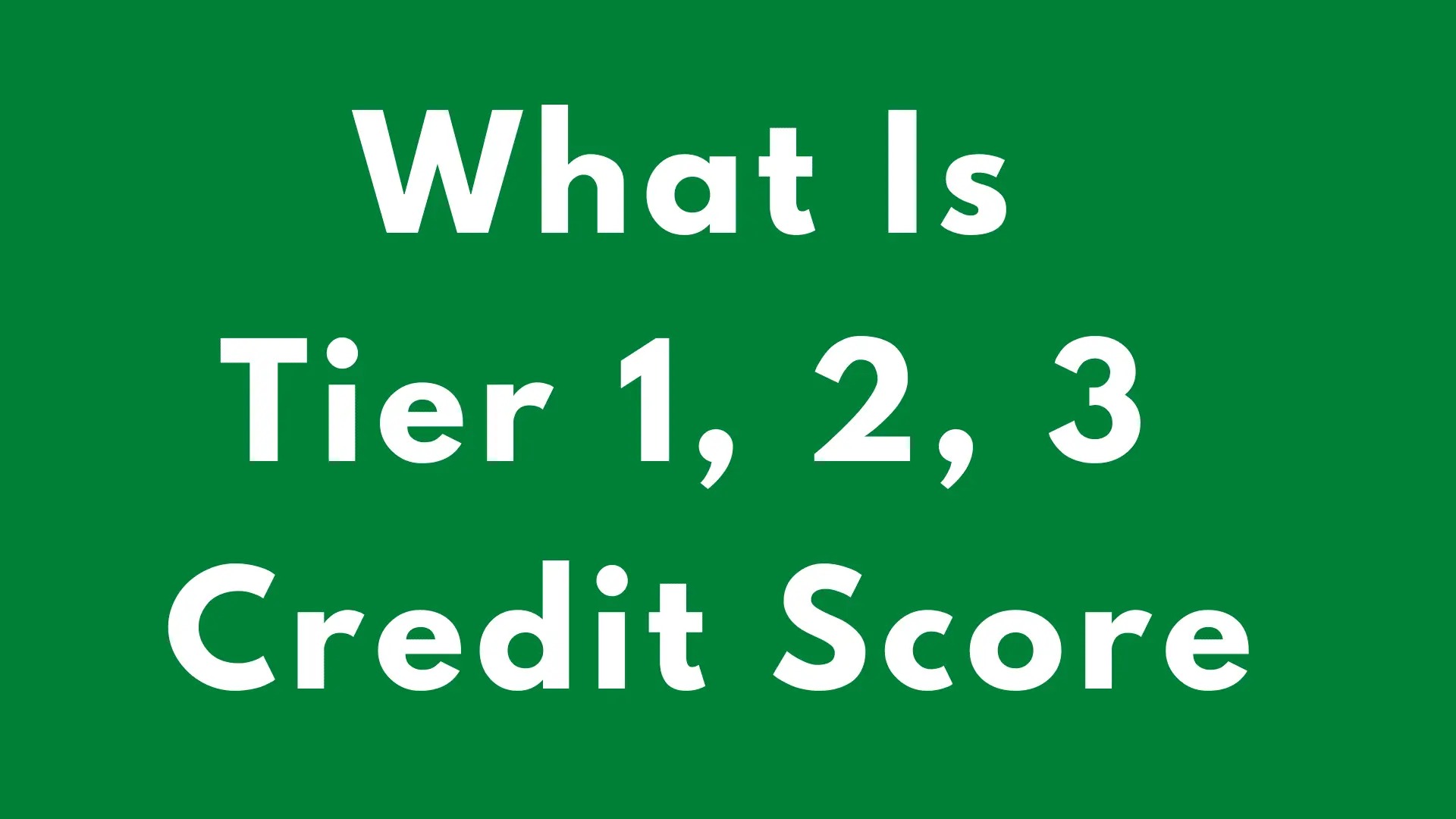Home>Finance>How Does Student Loan Forgiveness Affect Your Credit Score?


Finance
How Does Student Loan Forgiveness Affect Your Credit Score?
Modified: December 29, 2023
Learn how student loan forgiveness can impact your credit score and financial future. Understand the implications of this finance-related program and make informed decisions.
(Many of the links in this article redirect to a specific reviewed product. Your purchase of these products through affiliate links helps to generate commission for LiveWell, at no extra cost. Learn more)
Table of Contents
- Introduction
- What is student loan forgiveness?
- Types of student loan forgiveness programs
- How does student loan forgiveness work?
- Impact of student loan forgiveness on your credit score
- Positive effects of student loan forgiveness on your credit score
- Negative effects of student loan forgiveness on your credit score
- Factors to consider before opting for student loan forgiveness
- Conclusion
Introduction
Student loan forgiveness has become a hot topic in recent years as student loan debt continues to skyrocket. With many graduates struggling to make ends meet and repay their loans, the prospect of having their debt forgiven can be a lifesaver. However, one question that often arises is how student loan forgiveness affects your credit score.
Before we dive into the impact on your credit score, let’s first understand what student loan forgiveness is. Simply put, it is a program that relieves borrowers from the obligation of repaying their student loans. This can be achieved through various programs offered by the government or private lenders.
There are different types of student loan forgiveness programs available, each with its own set of eligibility criteria and requirements. Some programs focus on forgiving a portion of the loan based on specific conditions, while others offer complete forgiveness after a certain period of time.
Now, let’s explore how student loan forgiveness works and how it can affect your credit score. Understanding these factors is crucial for making an informed decision about whether to pursue student loan forgiveness or not.
What is student loan forgiveness?
Student loan forgiveness is a program designed to relieve borrowers from the burden of repaying their student loans. It provides a means for borrowers to have a portion or all of their loan debt forgiven, depending on the specific program they qualify for.
There are several types of student loan forgiveness programs available, each with its own eligibility requirements and conditions. These programs can be categorized into two main types: public service loan forgiveness and loan forgiveness through income-driven repayment plans.
Public service loan forgiveness is available to individuals who work full-time in certain public service careers, such as government, non-profit organizations, or teaching. Under this program, borrowers can have their remaining loan balance forgiven after making 120 qualifying monthly payments.
On the other hand, loan forgiveness through income-driven repayment plans is available to borrowers who enroll in specific repayment plans and make consistent payments based on their income. After making payments for a certain period of time, usually 20 to 25 years, borrowers can have their remaining balance forgiven.
It’s important to note that student loan forgiveness is usually only applicable to federal student loans. Private student loans generally do not qualify for forgiveness programs. However, some private lenders offer their own forgiveness options, although these are typically more limited in scope.
It’s crucial to carefully review the requirements and conditions of each student loan forgiveness program to determine if you are eligible and if it aligns with your financial goals and circumstances. Keep in mind that not all borrowers will qualify for forgiveness, and even if you do, there may be tax implications for the amount forgiven.
Now that we understand the basics of student loan forgiveness, let’s explore how it can impact your credit score.
Types of student loan forgiveness programs
There are various types of student loan forgiveness programs available, each offering a potential solution for borrowers overwhelmed by their student loan debt. These programs can be categorized into different types based on their eligibility criteria and conditions. Let’s explore some of the most common types of student loan forgiveness programs:
- Public Service Loan Forgiveness (PSLF): This program is aimed at individuals who work full-time in qualifying public service jobs. After making 120 qualifying monthly payments, borrowers may be eligible to have the remaining balance forgiven. Eligible public service jobs include government, non-profit organizations, and teaching.
- Teacher Loan Forgiveness: Specifically designed for teachers, this program offers loan forgiveness of up to $17,500 for qualified teachers who work in low-income schools or educational service agencies for five consecutive years. Teachers must meet specific criteria, such as having a certain type of loan and being a highly qualified teacher.
- Income-Driven Repayment (IDR) Forgiveness: Under income-driven repayment plans like Income-Based Repayment (IBR), Pay As You Earn (PAYE), and Revised Pay As You Earn (REPAYE), borrowers make payments based on their income and family size. After making consistent payments for 20 to 25 years, depending on the plan, the remaining loan balance may be forgiven.
- Perkins Loan Cancellation: Borrowers who have Perkins Loans may be eligible for loan cancellation based on their profession. This includes careers such as teaching, nursing, law enforcement, and military service. The amount of loan cancellation varies depending on the profession and the number of years of service.
- Closed School Discharge: If your school closes while you are enrolled or shortly after you withdraw, you may be eligible for a closed school discharge. This allows you to have your federal student loans forgiven and potentially receive a refund for payments made on the loan.
It’s important to note that each program has specific eligibility requirements and conditions that must be met. It’s crucial to thoroughly research and understand the details of each program to determine if you qualify and if it aligns with your financial goals.
Now that we’ve explored the different types of student loan forgiveness programs, let’s dive into how student loan forgiveness works and its impact on credit scores.
How does student loan forgiveness work?
Student loan forgiveness programs work by relieving borrowers of some or all of their student loan debt. The specific process and requirements for each program may vary, but generally, the following steps are involved:
- Eligibility determination: The first step is to determine if you meet the eligibility criteria for the specific student loan forgiveness program you are interested in. Eligibility requirements can include factors such as employment in a qualifying profession, consistent payment history, or being enrolled in specific repayment plans.
- Application submission: Once you have determined your eligibility, you will need to submit an application for the forgiveness program. This may involve providing documentation of your employment, income, and loan repayment history.
- Verification process: After submitting your application, it will go through a verification process to ensure that you meet all the necessary requirements. This may involve reviewing your employment records, income documentation, and loan repayment history.
- Approval and forgiveness: If your application is approved, you will receive notification of your acceptance into the forgiveness program. The remaining balance of your student loan will then be forgiven according to the terms of the program.
- Follow-up and maintenance: It’s important to note that some forgiveness programs require continued compliance with certain conditions, such as working in a qualifying profession for a specified period of time or making consistent payments based on your income. Failing to meet these requirements could result in the forfeiture of the forgiveness benefits.
It’s important to thoroughly research and understand the specific requirements and processes for the forgiveness program you are interested in. Each program may have different deadlines, application procedures, and verification processes.
Now that we understand how student loan forgiveness works, let’s explore the impact it can have on your credit score.
Impact of student loan forgiveness on your credit score
Student loan forgiveness can have both positive and negative effects on your credit score. It’s important to understand these impacts before deciding whether to pursue student loan forgiveness. Let’s explore both sides:
Positive effects:
- Debt reduction: Student loan forgiveness can significantly reduce or eliminate your outstanding loan balance. This can lower your overall debt-to-income ratio, which is a key factor in calculating credit scores. A lower debt-to-income ratio can positively impact your credit score.
- Improved payment history: If you were struggling to make payments on your student loans, forgiveness can help erase past delinquencies or defaults from your credit history. This can lead to an improved payment history, which is another important factor in credit scoring models.
- Increased financial freedom: Removing the burden of student loan debt through forgiveness can free up your financial resources. This can enable you to better manage other financial obligations and make timely payments on your other debts, which can ultimately improve your credit score.
Negative effects:
- Temporary credit score drop: In some cases, the forgiveness process itself can result in a temporary dip in your credit score. This can happen when your loans are initially marked as “settled” or “closed,” which may be viewed negatively by credit scoring models. However, this drop is usually temporary and can be overcome by building positive credit history afterward.
- Tax implications: Depending on the forgiveness program and the amount forgiven, you may be required to report the forgiven debt as taxable income. This could have tax consequences, including potentially increasing your tax liability. It’s important to consult with a tax professional to understand the potential impact on your finances.
- Long-term credit profile: While forgiveness can remove the immediate burden of student loan debt, it’s important to consider the long-term impact on your credit profile. Not having student loan debt may decrease the diversity of your credit mix, which is another factor in calculating credit scores. This could impact your credit score if you don’t have other types of loans or credit accounts to demonstrate your creditworthiness.
It’s essential to weigh the potential positive and negative impacts of student loan forgiveness on your credit score, as well as consider your overall financial situation and goals.
Now that we’ve explored the impact of student loan forgiveness on your credit score, let’s discuss some key factors to consider before opting for student loan forgiveness.
Positive effects of student loan forgiveness on your credit score
Student loan forgiveness can have several positive effects on your credit score. While the specific impact may vary depending on individual circumstances, here are some potential positive effects to consider:
- Reduced debt-to-income ratio: Student loan forgiveness can significantly lower your outstanding loan balance or eliminate it altogether. This reduction in debt can improve your debt-to-income ratio, which is a key factor in credit scoring models. A lower debt-to-income ratio demonstrates better financial stability and can positively impact your credit score.
- Improved payment history: If you were struggling to make payments on your student loans, forgiveness can wipe away past delinquencies or defaults from your credit history. Making consistent and on-time payments is vital for maintaining good credit. Eliminating a history of missed or late payments can improve your payment history, which is another important factor in credit scoring models.
- Increased creditworthiness: With the burden of student loan debt lifted, you may have more financial freedom and flexibility to manage other debts responsibly. This can include making timely payments on other loans, such as credit cards or mortgages. Demonstrating responsible credit behavior can increase your creditworthiness and positively impact your credit score.
- Opportunity for financial growth: Student loan forgiveness can provide a fresh start and create opportunities for financial growth. With reduced debt and potentially lower monthly payments, you may have the ability to save more, invest, or pursue other financial goals. This can enhance your overall financial well-being and potentially contribute to an improved credit score over time.
It’s important to note that the exact impact on your credit score will depend on various factors and the specifics of your financial situation. Additionally, it’s essential to continue practicing responsible financial habits even after receiving student loan forgiveness to maintain and further improve your credit score.
While student loan forgiveness can offer positive effects on your credit score, it’s important to also consider the potential negative effects. Let’s discuss these factors in the next section.
Negative effects of student loan forgiveness on your credit score
While student loan forgiveness can provide relief from the burden of student loan debt, it’s important to be aware of potential negative effects on your credit score. Here are some considerations to keep in mind:
- Temporary credit score dip: The forgiveness process itself may result in a temporary decrease in your credit score. When your loans are marked as “settled” or “closed,” it can be viewed negatively by credit scoring models. This temporary dip typically occurs because the status change can signal that the debt was not fully repaid. However, this drop is usually minor and can be overcome with responsible credit behavior over time.
- Tax implications: Depending on the forgiveness program and the amount forgiven, you may be required to report the forgiven debt as taxable income. This can potentially increase your tax liability. It’s important to consult with a tax professional to understand the potential impact on your finances and plan accordingly.
- Impact on credit mix: Student loan forgiveness can remove a significant portion of your outstanding debt, which may impact the diversity of your credit mix. Credit mix refers to the different types of credit accounts you have, such as loans and credit cards. Having a diverse mix of credit accounts can positively impact your credit score. If you solely had student loans and they are forgiven, it may decrease the diversity of your credit mix.
- Long-term credit impact: While forgiveness can provide immediate relief, it’s important to consider the long-term impact on your credit profile. If you no longer have student loan debt, it may reduce the variety of credit accounts on your credit report. Creditors like to see a mix of different types of credit, such as loans, credit cards, or a mortgage, to assess your creditworthiness. Not having other forms of credit may impact your credit score, especially if you don’t have a history of responsible credit management.
It’s crucial to weigh the potential negative effects of student loan forgiveness against the benefits and your overall financial goals. Understanding these potential downsides can help you make an informed decision about pursuing student loan forgiveness.
Now that we have explored the positive and negative effects of student loan forgiveness on your credit score, let’s discuss important factors to consider before opting for student loan forgiveness.
Factors to consider before opting for student loan forgiveness
Before deciding to pursue student loan forgiveness, it’s important to take into consideration various factors that may impact your financial situation. Here are some key factors to consider:
- Eligibility requirements: Take the time to carefully review the eligibility requirements for the forgiveness program you are interested in. Ensure that you meet all the necessary criteria, such as employment in a qualifying profession or enrollment in specific repayment plans.
- Long-term financial goals: Consider your long-term financial goals and how student loan forgiveness aligns with them. If you have other financial objectives, such as saving for retirement or purchasing a home, determine whether pursuing forgiveness is the best option or if it would hinder your ability to achieve those goals.
- Tax implications: Understand that forgiven student loan debt may be considered taxable income. Consult with a tax professional to evaluate the potential tax consequences and assess if you have the means to cover the resulting tax liability.
- Impact on credit score: Evaluate the potential impact of student loan forgiveness on your credit score. Consider both the positive effects, such as reduced debt-to-income ratio and improved payment history, as well as the potential negative effects, such as a temporary dip in your credit score or the impact on credit mix. Assess if the potential benefits outweigh any potential drawbacks.
- Other debt obligations: Take into account your other debt obligations. If you have other types of debt, such as credit card debt or a mortgage, evaluate how student loan forgiveness will affect your ability to manage and pay off those obligations. Consider whether the funds that would have gone towards student loan payments could be better utilized towards other debts.
- Future financial uncertainty: Assess any potential future financial uncertainties. While forgiveness may provide immediate relief, consider how it may impact your ability to access credit in the future if there is a need for additional loans. Evaluate the potential implications of a limited credit history or reduced credit mix.
Thoroughly evaluating these factors will help you make an informed decision about whether pursuing student loan forgiveness is the right choice for your financial situation. It’s also important to gather information, seek advice from financial professionals if needed, and consider your individual circumstances and goals.
Now that we have discussed the important factors to consider, let’s conclude the article.
Conclusion
Student loan forgiveness can provide much-needed relief for borrowers burdened by student loan debt. However, it’s crucial to carefully consider the impact on your credit score and overall financial situation before deciding to pursue forgiveness.
By understanding the positive effects of student loan forgiveness, such as reduced debt-to-income ratio and improved payment history, you can see the potential benefits it can have on your credit score. It can also provide you with increased financial freedom and the opportunity to focus on other financial goals.
However, it’s important to be aware of the potential negative effects, including a temporary dip in your credit score, tax implications, and the impact on credit mix. Considering these factors can help you make an informed decision and manage potential drawbacks associated with student loan forgiveness.
Ultimately, the decision to pursue student loan forgiveness should be based on your individual circumstances and financial goals. It’s important to carefully weigh the benefits and drawbacks, seek professional advice if needed, and consider the long-term impact on your credit profile and financial well-being.
Remember to thoroughly research the eligibility requirements, understand the specific terms of the forgiveness program you are interested in, and evaluate the potential impact on your credit score and financial future.
In conclusion, student loan forgiveness can be a valuable tool for alleviating the burden of student loan debt. By taking the time to assess the pros and cons, you can make an informed decision that aligns with your financial goals and sets you on a path towards a brighter financial future.














